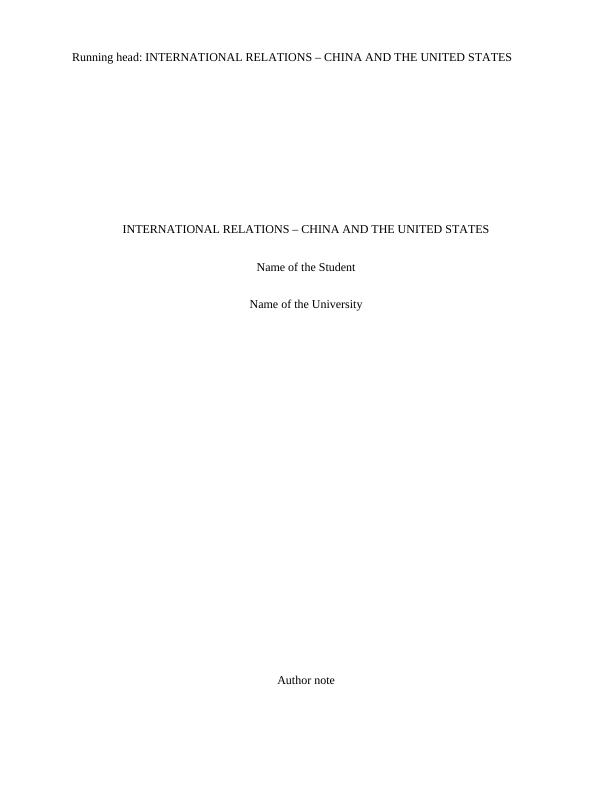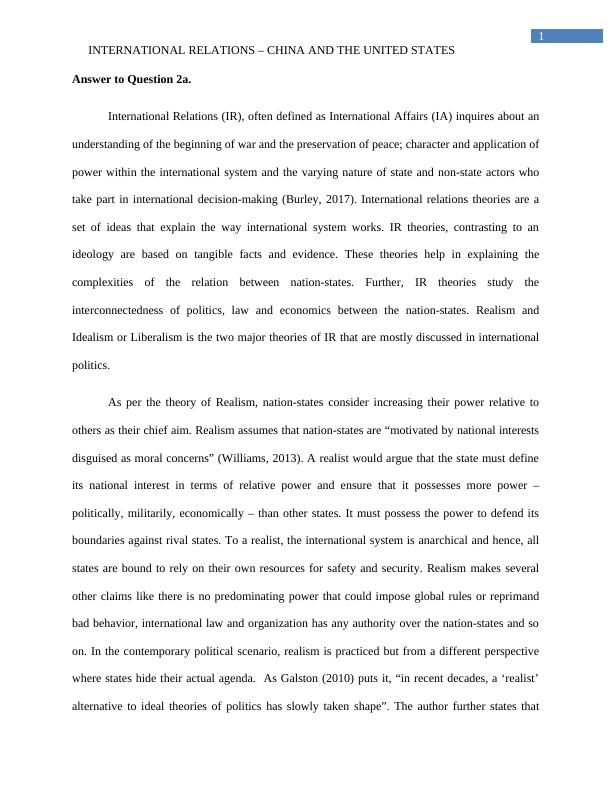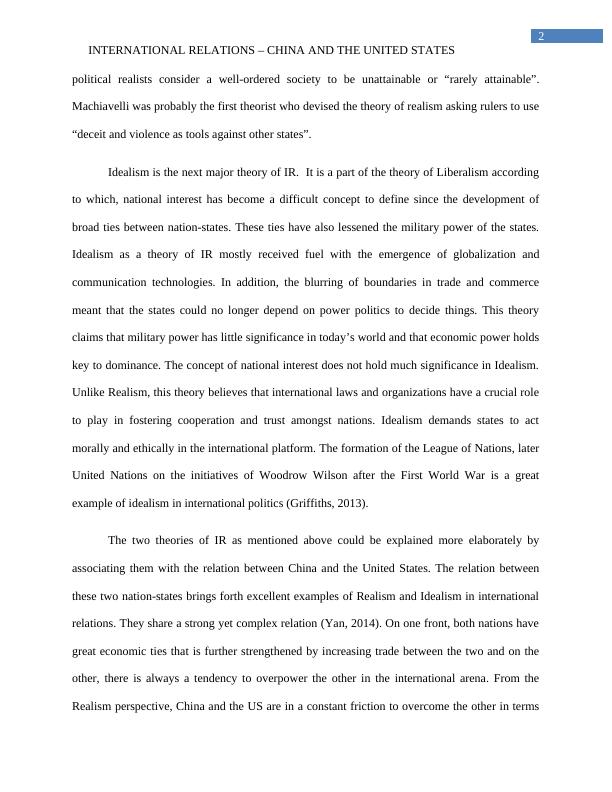International Relations - China and the United States
6 Pages1518 Words107 Views
Added on 2023-06-10
About This Document
This article explores the two major theories of International Relations, Realism and Idealism, and their relevance to the complex relationship between China and the United States. It discusses the history of the China-US relationship and how it has shifted between Realism and Idealism over time, with the current US administration taking a more Realist approach. The article also highlights the importance of economic power in today's world and the role of international laws and organizations in fostering cooperation and trust amongst nations.
International Relations - China and the United States
Added on 2023-06-10
ShareRelated Documents
End of preview
Want to access all the pages? Upload your documents or become a member.
Evolution of International Relations - Essay
|8
|2401
|461
Critical Review of IR Theories on Why does the international community not intervene in the humanitarian crisis in Syria?
|7
|2060
|56
International Politics - Assignment
|8
|2139
|95
How well do IR’s main theories explain the structure and
|11
|3656
|53
Neo-Realism and Neo-Liberalism on International Relations
|9
|2394
|78
HIR101 - Assignment on International Relations
|6
|1257
|47



